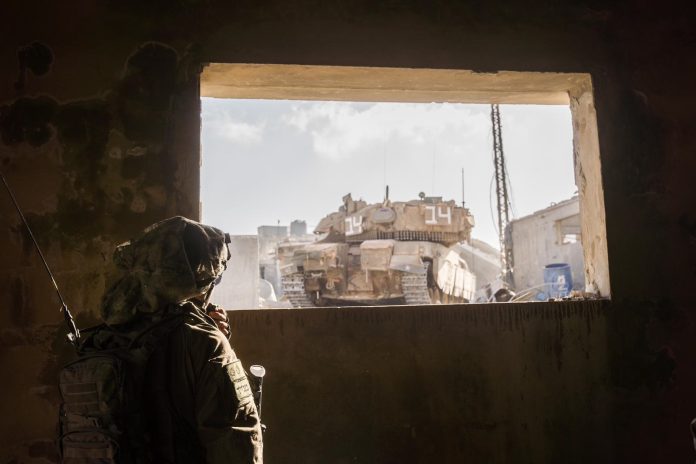As the Hezbollah military group is mulling a response to a proposed ceasefire, Israeli troops have allegedly made the deepest incursion into southern Lebanon since the recent offensive on 1 October.
On Friday evening, Israeli troops reached the village of Chama, about 61 miles from the capital Beirut, known for its St Peter’s shrine. According to the Lebanese National News Agency (NNA), upon reaching the area, the Israeli troops managed to blow up the shrine, located on a main hill in the village. Then, on Saturday, the Israeli army continued heavy strikes on Beirut’s southern suburbs, the fifth consecutive day of Israeli attacks on Beirut’s Dayiyeh neighbourhood, a Hezbollah stronghold. It remains unclear whether there were casualties from the strikes.
The Israel Defence Forces stepped up its strikes on the capital and expanded its ground operation in southern Lebanon in recent days. Israel said it targeted Hezbollah terrorist infrastructure, accusing the Iranian-backed group of infiltrating civilians, and evacuation orders were issued in several locations before the attacks. The heavy strikes coincided with the resumption of ceasefire talks in Lebanon.
The strikes come as US Ambassador to Lebanon Lisa Johnson handed the Lebanese government a new US-Israeli ceasefire proposal on Thursday night, sources said. Hezbollah is most likely to accept the terms of the agreement, but it remains unclear whether increased strikes on Lebanon will affect the ceasefire talks. Since Hezbollah continues to systematically shell areas in northern Israel. On Saturday, at least 60 shells were found flying from Lebanon into Israel, according to Israeli statements.
Israel launched a major offensive in Lebanon in the middle of September after months of retaliatory border attacks that began when Hezbollah attacked Israel in solidarity with Hamas and Palestinians in Gaza. The return of 60,000 civilians to their homes in northern Israel has become a political imperative for the country’s leadership.
When a ceasefire deal might come to fruition
Current US officials report the proposal is close to being concluded. Some officials informed President-elect Donald Trump they intend to give the new team a ceasefire as a gift. On the other hand, Israeli officials signalled to President Joe Biden that they want to move forward with an agreement as soon as possible. Officials say that the main stumbling point remains how to get Hezbollah to pull back from southern Lebanon and whether the Lebanese military will be willing to play a more active role there.
The proposal aims to achieve a 60-day cessation of hostilities and is being presented as the basis for a lasting ceasefire, adding the terms are within the parameters of UN Resolution 1701, which ended the 2006 Lebanon-Israel war. The proposal also calls for the withdrawal of Israeli ground troops, operating in southern Lebanon since late September, behind the internationally recognised border between the two countries. The resolution stipulates that the only armed groups in the area south of Lebanon’s Litani River should be the Lebanese army and a UN peacekeeping force.
